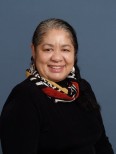 “He who does not know can know from learning”
“He who does not know can know from learning”
The subject line for an email sent to Storytell listserve read, “Borrowing or stealing?”
Storyteller Meg Gilman wrote that her workshop had been “borrowed” by someone else without her knowledge or permission:
“It’s nice that folks recognize a good thing when they experience it and I appreciate that, but it’s crappy for me when I see my workshop being presented at a conference by someone else… It breaks my heart, frankly… My workshops offer information for people to ‘use in their work’, [not to be] recycled with someone else’s name on them… One reaction I had to this last situation is whether I will be able to present my original workshop again, without appearing to have copied the ‘copier’.”
Such “borrowing” has happened to other hard-working tellers, including me. Most story-sharers ask for my permissions (and receive them, with info on how to credit, or suggestions for researching/creating variations, and my blessing either way). But I’ve heard a few of my versions of stories, (and my family’s), memorized by someone else and told onstage without acknowledgement, as well as included without permission in some workshop material. Without a lot of noise or animosity, I let others know whose hard work was really being shared.
A teller who aspires to be professional should honor the familial story experience or creative property, research, preparation, recording and/or writing and submission for publication of the source. Otherwise, that teller doesn’t deserve the honor of the story, for that teller has no claim to the process.
For works of orature, the concern is a moral issue more than a copyright infringement. In every storyteller’s work–spoken or printed or otherwise recorded, danced, drummed, or preserved in any way–is a part of that artist’s soul. You can’t “borrow” a storyteller’s soul.
Storyteller and humanitarian Laura Simms responded on Storytell, “For those of us who have devoted our lives to this work with original thinking, regard for cultures, and very dedicated work on stories and workshops, it is disheartening to have work outrightly stolen, and misused, etc. in the name of storytelling. There is no other art form that is as relational and profoundly effective because of the presence of a living artist.”
Before you tell anyone else’s story, consider: Is it yours to tell, or have you simply and strongly connected with it? Is it from your personal, cultural knowledge base, or would your telling be considered secondhand hearsay—someone else’s story? If you “must” tell it, will you speak with its source, and ask where it originated (it might be an original piece that sounds like a folktale; it might be from a literary source, which means telling it might be a copyright infringement)? Then ask your source, “If I credit your work, may I tell your story”? If the answer is no, accept that and do your own work.
Before you use anyone else’s workshop materials, there is only one question to ask the author of the work: Do I have your permission to quote from your work? There is no other question; the use of anyone’s recorded material (CD, DVD, printed, even when it has no copyright symbol) is illegal. Period. No, exclamation point!
If you’re aware of someone stealing your intellectual work, tell them and others. Claiming and reclaiming your work (and protecting what you must from your created orature and original, researched literature through copyright) is what should be done.
- Lyn Ford
 Lynette (Lyn) Ford is a fourth-generation Affrilachian storyteller and teaching artist for the Ohio Alliance for Arts Education and the Ohio State-Based Collaborative Initiative of the Kennedy Center, and a member of NABS’ Circle of Elders. Lyn is also an author, mentor for young writers for the Thurber House, great-grandmother, and proud member of the Cleveland Association of Black Storytellers (CABS). (Lyn’s highly-acclaimed work, Affrilachian Tales: Folktales from the African-American Appalachian Tradition, was reviewed in the Fall 2014 issue of Spread The Word, the NABS print newsletter.)
Lynette (Lyn) Ford is a fourth-generation Affrilachian storyteller and teaching artist for the Ohio Alliance for Arts Education and the Ohio State-Based Collaborative Initiative of the Kennedy Center, and a member of NABS’ Circle of Elders. Lyn is also an author, mentor for young writers for the Thurber House, great-grandmother, and proud member of the Cleveland Association of Black Storytellers (CABS). (Lyn’s highly-acclaimed work, Affrilachian Tales: Folktales from the African-American Appalachian Tradition, was reviewed in the Fall 2014 issue of Spread The Word, the NABS print newsletter.)
To join Storytell, “a worldwide online community” listserve supported by the National Storytelling Network, go to http://www.storynet.org/storytell.html
Adinkra symbol (depicted with beginning quote): NEA ONNIM NO SUA A, OHU whose source is Cloth As Metaphor by G.F. Kojo Arthur
A glimpse of the dilemma for spoken word artists and creative copyrights—Chapter 8, “Categories of Copyright Work” can be read, in Intellectual Property Law by Helen Norman. Oxford University Press, 2nd Edition, 2014.
Thank you Lyn for this thoughtfully written post. You captured the essence.
This is a great point! Imagine if NABS had it’s own internal copyright portal. When you create or modify a story, you can upload it, the way you tell it and have your credits listed. This way people can see the collection of works all in one place and know whose story it is. It could act as a reference file and a history of archives for member’s works and maybe be the source for a journal or publication at some point. To take this a step further, imagine if you could also upload your workshop curricula and presentations. Someone could download it for a fee, and NABS gets part of the fee, the creator gets the other. Just thinking about solutions to this important issue…
Thank you for sharing sister/mother Lyn Ford. This was such timely information.
very important subject matter. Well done sister, Lyn!
Thank you for such a well said reminder that creativity of any sort belongs to the creator.
Thank you Lyn. Succinct and solid. In other fields, lawyers are called to resolve these unfair boundary violations. I feel hopeful and proud when a Mentor like you speaks firmly and peacefully for behavior change that lifts us all.
This is so needed. It is never too late to reminds us how to respect our creative flow and be conscious of how we want to be treated. What is done in the dark, sooner or later comes to light*!*